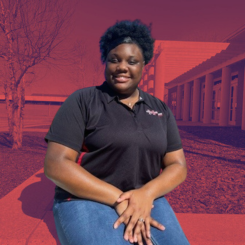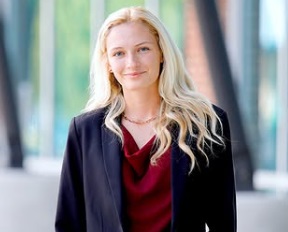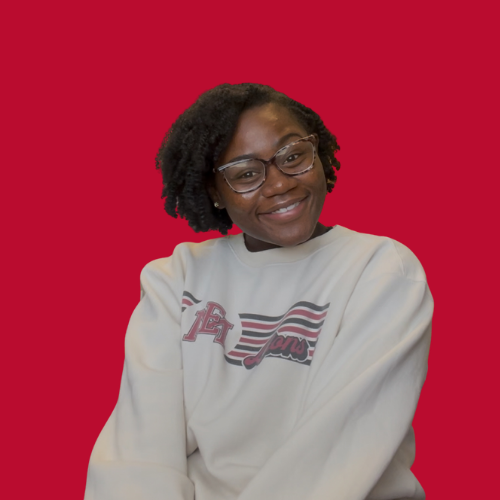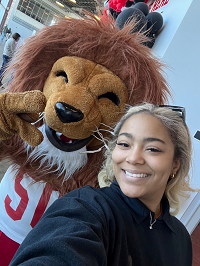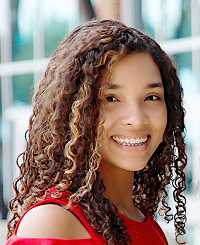18mar
EMCC STUDENT LIVING LIFE WITH A PURPOSE
News
March 18, 2018
Republic of Honduras resident Gissela Perdomo’s push to obtain a U.S. education is
fueled by a passion to create a start-up business in her home country to provide hope,
direction and employment to some of the poorest women in the western hemisphere.
Perdomo graduates from East Mississippi Community College in May with a technical
certificate in Business and Marketing Management Technology. She will need two additional
classes at EMCC to complete her associate’s degree and plans to take them online once
she returns home.
The problem
Perdomo is a native of San Pedro Sula, the second largest city in Honduras with a
metropolitan service area of more than 1.4 million residents, according to the city’s
Central District: Municipal Information.
Honduras is a poverty-stricken nation with an annual per capita income of about $600
U.S. dollars, with an estimated six out of 10 families earning less than $2.50 a day,
according to World Bank statistics.
“What you consider poor in the U.S. would be considered middle class in Honduras,”
Perdomo said.
Some of the most destitute residents in San Pedro Sula reside in the city’s bordos,
illegal settlements dotted with ramshackle shacks fashioned together from cardboard,
plastic and other materials at hand, Perdomo said. Most of the inhabitants of the
bordos are uneducated farm workers with unrealized hopes of finding work in the city.
Prostitution and substance abuse are rampant here and gang members entice children
and teenagers into crime with the lure of easy money, Perdomo said. San Pedro Sula
is consistently ranked among the most violent cities in the world by the United Nations
Office on Drugs and Crime.
Relief
Perdomo would like to hire women in the bordos and in destitute rural communities
to make handmade leather crafts she would sell through the company she wants to start.
“The heart of the project is leather wallets, which sell well,” Perdomo said. “There
is a great need for good jobs and my dream is to create something that will at least
give hope to a few people.”
She wants to partner with area churches to provide the women with not only jobs but
spiritual guidance as well.
“I wish money were the solution to all of our problems,” Perdomo said. “It’s not,
although it is part of it. It doesn’t hurt to have money. But if you don’t have the
principles and values and, most importantly, the fear of God in your heart, you might
end up having money but not doing anything good with it.”
Perdomo wants to name the business, “Touch,” after a bible verse found in Matthew
8:2-3, which recounts how Jesus touched a leper and healed him of his affliction.
“There are so many things I know Jesus is willing to heal in our nation,” Perdomo
said. “Honduras has a lot of potential but we just need that touch and opportunity.”
A sound business plan
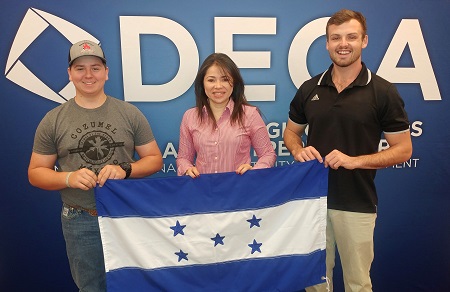 Perdomo and fellow EMCC Business and Marketing Technology students Clayton Forrester
and William Jannssen pitched the business proposal for “Touch” during a state Collegiate
DECA competition at Hinds Community College’s Rankin campus on Feb. 1.
Perdomo and fellow EMCC Business and Marketing Technology students Clayton Forrester
and William Jannssen pitched the business proposal for “Touch” during a state Collegiate
DECA competition at Hinds Community College’s Rankin campus on Feb. 1.
The presentation earned them first place in the Entrepreneurship category, during
which the competitors had to pitch a start-up business model from conception, to funding
to implementation.
Perdomo, Forrester and Jannssen qualified to represent the state of Mississippi April
11-14 in the international championships during the Collegiate DECA International
Career Development Conference at the Crystal Gateway Marriott in Arlington, Va., where
more than 1,000 students will compete.
The EMCC students will once again pitch Perdomo’s business proposal for “Touch,” but
this time on a much larger stage.
“If we qualify for first place, that will be a certainly plus not only for me, but
for EMCC, my professor and my classmates,” Perdomo said. “But I am excited just to
have the opportunity to talk about Honduras and about the option to do business in
a socially responsible way.”
EMCC Business and Marketing Technology instructor Dr. Joshua Carroll said the project
was well thought out.
“They did an excellent job with their presentation and the business model was sound,”
Carroll said.
One of the fortunate ones
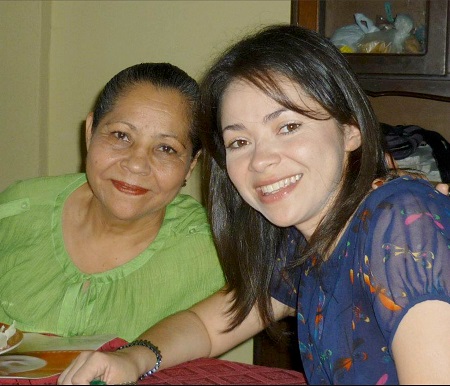 Although she grew up poor, Perdomo considers herself blessed. She was raised by her
mother, Doris, who has worked in the filing department at a public hospital in San
Pedro Sula for about 40 years.
Although she grew up poor, Perdomo considers herself blessed. She was raised by her
mother, Doris, who has worked in the filing department at a public hospital in San
Pedro Sula for about 40 years.
Perdomo said her mother worked hard to support the two of them and ensure that her
daughter had better opportunities than she had. Few Hondurans earn more than a sixth
grade education and Perdomo was among a select few students who qualified to enroll
at a public high school in San Pedro Sula for low income students.
Perdomo entered and won a competition at the school that paid her tuition at St. Louis
Community College in Missouri. It was her first trip to the U.S. That was in 1998
and two years later, Perdomo graduated with an associate’s degree in telecommunications.
When she returned home, Perdomo worked at radio and television stations before landing
a job in San Pedro Sula at a Caterpillar dealership as a warranty administrator and
technical translator. She enjoyed the work, bought her mother a modest home and had
achieved a level of financial stability.
But something was missing.
“I had this strong conviction that I needed to not only do something for my own family
but for somebody else,” Perdomo said. “That’s when I made the decision to quit my
job. I was not happy about it. I was like, ‘God, are you sure?’ But when God is calling
you to do something, I learned you had better be obedient.”
Mission work
Perdomo took a job as a translator for U.S. missionaries providing relief to residents
in the bordos.
“I began seeing Honduras in a totally different way,” Perdomo said. “We went to places
Hondurans will not even go but missionaries were going. I was able to see that, ‘OK,
God, this is what you were talking about.’ That’s when the desire and the flame to
help those in the bordos started in my heart. I knew I was on the right track.”
She worked as a translator for three years and served for a while as a director of
Sparrow Missions.
“I was so grateful for everything the missionaries were doing for my country,” Perdomo
said. “But I started thinking about our responsibility as Hondurans to do more than
just act as translators and making arrangements here and there. I felt we must do
something to help ourselves.”
That’s when the idea for “Touch” began to form. She wants to partner with local churches
and missions to provide for mind, body and soul of those she employs.
“This is not a project that is independent or dependent but interdependent, with working
partnerships on an equal level,” Perdomo said.
Although Perdomo knew she wanted to start her own company, she felt she didn’t have
the business acumen.
Virgil Culver, one of her mission friends, knew Carroll, who was able to get her in
his program at EMCC. New Horizons Christian Fellowship Church in Starkville, along
with NEI (New Enterprises International), raised funds to pay for Perdomo’s education
and expenses during her stay. Church elders and NEI missionaries Donald and Mary Bob
Buckner, have provided her a place to stay and have become members of her extended
family.
Up next
After graduating from EMCC, Perdomo plans to return home to Honduras. Her wish is
that her business proposal will garner recognition during the DECA international championships
in April.
“We are hoping the right people will want to partner with us financially to develop
the project fully,” Perdomo said. “My dream is that more Hondurans will be inspired
and start doing things like this. We need more than just one project.”
Eventually, Perdomo would like to return to Starkville and earn a degree in International
Marketing from Mississippi State University. She is grateful for her time at EMCC
and in the U.S, which she called a blessed nation.
“People here have access to a good education and well-paying jobs and an opportunity
to choose,” Perdomo said. “Anyone can use the available resources not only for their
own good but in order to help others. It is my prayer that more people here will be
able to see and value the so many blessings they have, embrace them and not take them
for granted — to have goals that will add to their lives and the lives of others,
not only materialistically but in their inner beings, spiritually and in love for
one another.”

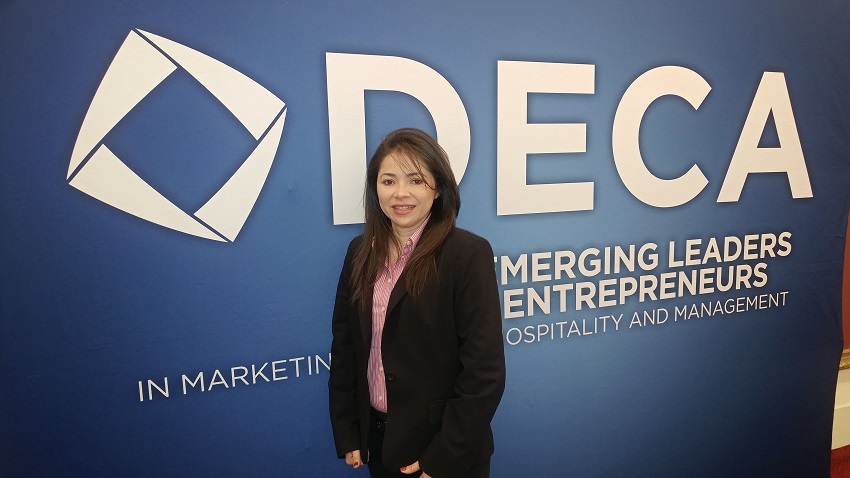
 Perdomo and fellow EMCC Business and Marketing Technology students Clayton Forrester
and William Jannssen pitched the business proposal for “Touch” during a state Collegiate
DECA competition at Hinds Community College’s Rankin campus on Feb. 1.
Perdomo and fellow EMCC Business and Marketing Technology students Clayton Forrester
and William Jannssen pitched the business proposal for “Touch” during a state Collegiate
DECA competition at Hinds Community College’s Rankin campus on Feb. 1.
 Although she grew up poor, Perdomo considers herself blessed. She was raised by her
mother, Doris, who has worked in the filing department at a public hospital in San
Pedro Sula for about 40 years.
Although she grew up poor, Perdomo considers herself blessed. She was raised by her
mother, Doris, who has worked in the filing department at a public hospital in San
Pedro Sula for about 40 years.

 Visit a Campus
Visit a Campus
